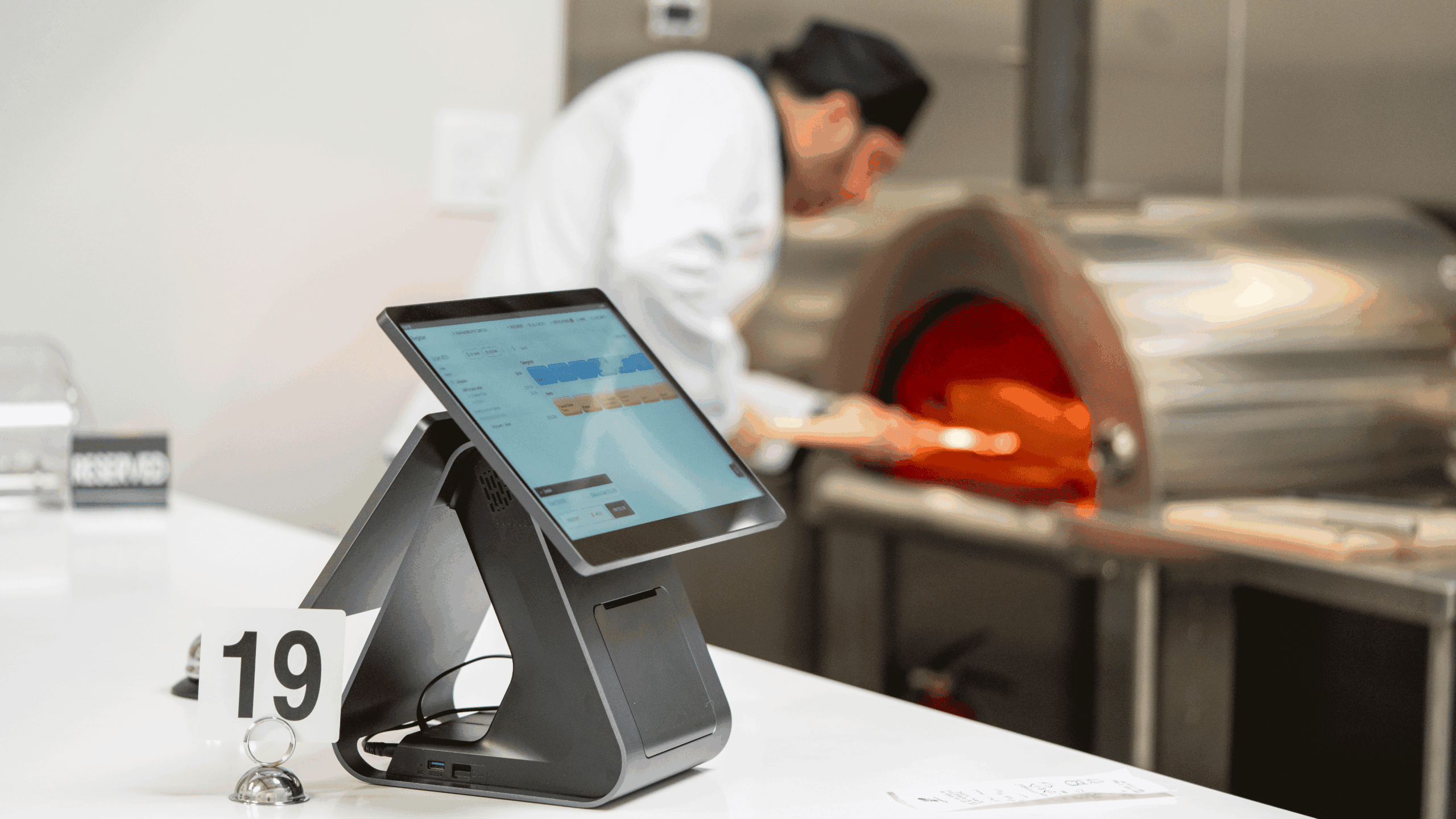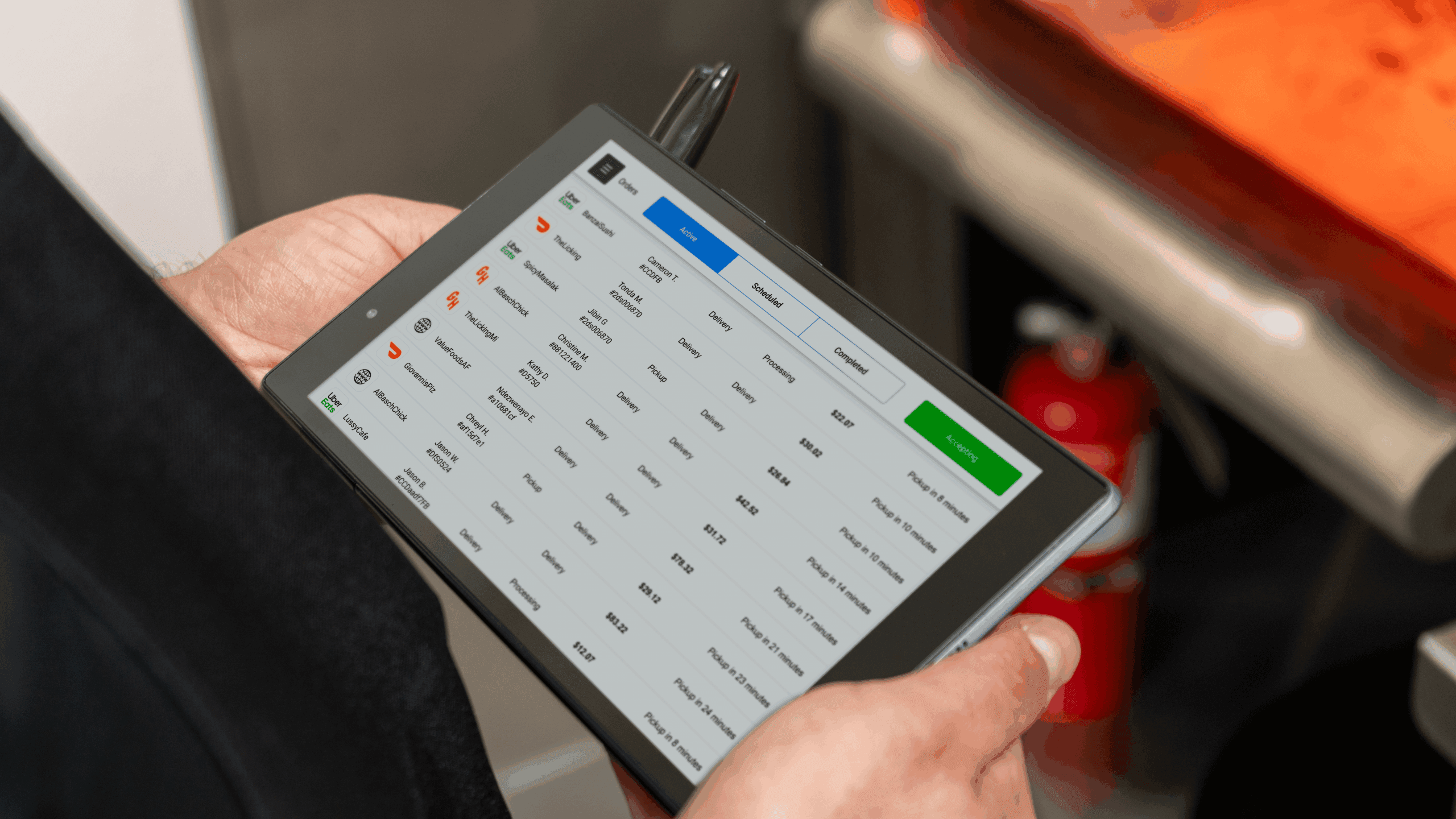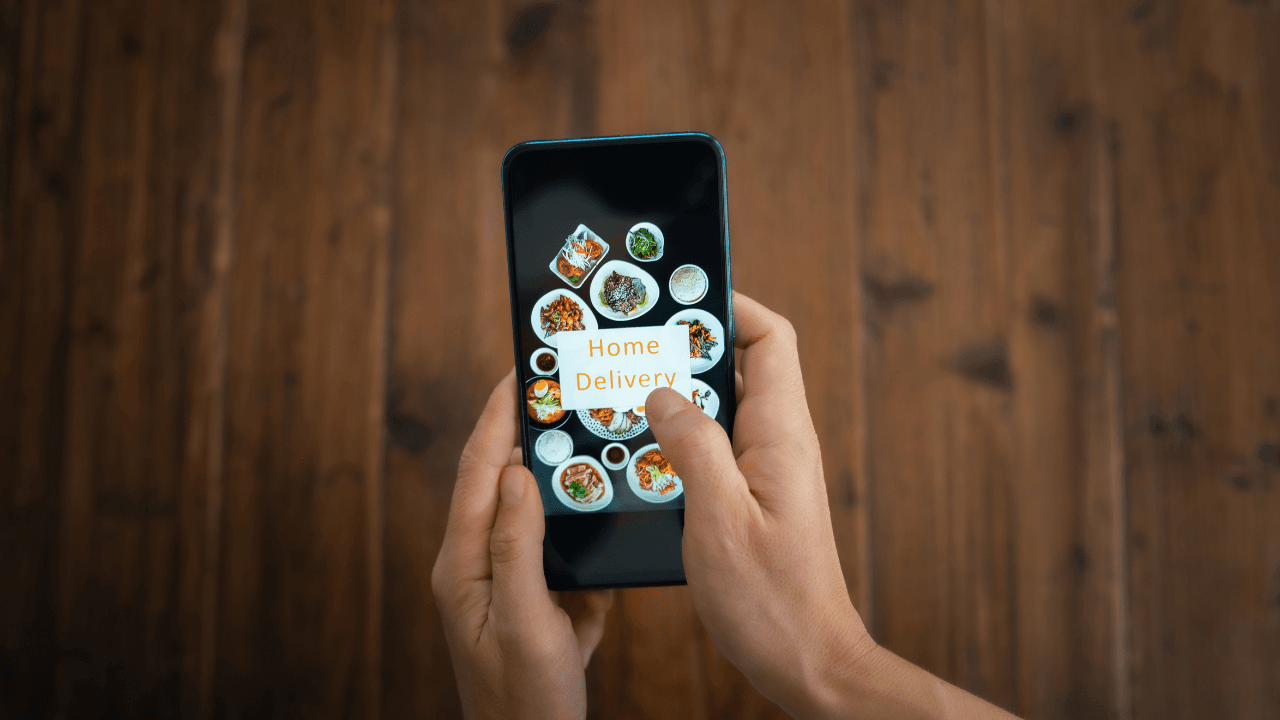- The Key Features of Restaurant Management Software
- What Important Innovations and Trends are Taking Place in Restaurant Management Software?
- The Benefits of Having Up-to-Date Restaurant Management Software Solutions
- Are You Ready to Invest in Updated Restaurant Management Software?
- Popular and Current Restaurant Management Software in 2024
- Empower Your Restaurant Management System with Modern Software Solutions
In the fast-paced world of restaurants, using technology wisely can make a big difference.
Imagine this: the market for software that helps manage restaurants was worth a vast USD 4,556.4 million in 2022, and it’s growing fast at 16.3% every year until 2030.
That’s a big deal!
In 2024, finding the best software for restaurant management systems is super important.
That’s why Orders.co has you covered. Take advantage of our vast partnerships with popular delivery apps and manage orders on one platform.
Update your menu, monitor customer feedback, and achieve more visibility through our optimized marketing solutions.
Schedule a Demo here
With this guide, we’re here to help you navigate the options and discover the best tools to make your restaurant run smoothly and keep your customers happy.
Let’s dive into the world of restaurant management software and find out what’s hot right now.
The Key Features of Restaurant Management Software
Managing all the restaurant tasks today needs careful investment in the right software.
After all, this software exists to make a restaurant manager’s life easier, especially during peak online ordering and dining times.
Here are some of the crucial features of having the best software for restaurant management:
Point of Sale (POS) Integration, including Mobile POS
A robust POS system is essential for processing orders, managing transactions, and tracking sales.
Restaurant management software often seamlessly integrates with POS systems, including mobile POS options, to streamline operations and ensure accurate sales data recording.
Mobile POS systems are currently on the rise. These systems allow staff to dedicate more time to engaging with customers directly on the sales floor, reducing the need for frequent trips to the kitchen and administrative areas.
Inventory Management System
Keeping track of ingredients, supplies, and other inventory items is vital for controlling costs and minimizing waste.
Advanced software solutions offer features like real-time inventory tracking, automated reordering, and ingredient-level monitoring to optimize inventory management processes.
Table Management
Efficiently managing table reservations, seating arrangements, and waitlists is crucial for providing excellent customer service.
Restaurant management software typically includes table management features that enable hosts to assign tables, track dining status, and optimize seating arrangements to maximize restaurant capacity.
Menu Customization
Flexibility in menu creation and customization allows restaurants to adapt to changing trends, dietary preferences, and seasonal ingredients.
Software with menu management capabilities empowers restaurateurs to easily update menus, add new items, set pricing, and highlight specials to engage customers and drive sales.
Staff Scheduling and Management System
Properly scheduling and managing staff members is essential for maintaining operational efficiency and ensuring smooth service.
Restaurant management software often includes features for creating employee schedules, tracking hours worked, managing labor costs, and communicating with staff members.
Security Features
Protecting sensitive customer data and ensuring compliance with industry regulations are paramount for any restaurant business.
Modern restaurant management software incorporates robust security features such as data encryption, user access controls, and secure payment processing to safeguard against cyber threats and maintain customer trust.
These features collectively empower restaurant owners and managers to improve operations and customer experiences and drive business growth in a competitive industry.
What Important Innovations and Trends are Taking Place in Restaurant Management Software?
Several important innovations and trends are reshaping the landscape of restaurant management software, catering to the evolving needs of both restaurateurs and customers:
Cloud-based POS Systems
Cloud-based POS systems have revolutionized restaurant operations by providing flexibility, scalability, and accessibility.
These systems allow restaurant owners to manage orders, payments, and inventory from any location with Internet access.
For example, Toast, a leading provider of cloud-based POS solutions, enables restaurants to optimize operations and enhance customer experiences through its intuitive platform.
Updated Restaurant Accounting Software
Modern restaurant accounting software goes beyond basic financial management to offer insights into consumer consumption trends.
These systems provide valuable information for menu optimization and marketing strategies by analyzing sales data and customer preferences.
For instance, QuickBooks Online offers robust accounting features tailored specifically for restaurants, allowing owners to track sales trends and identify popular menu items in real time.
Menu Consolidation for Effortless Orders
Restaurant management software often includes features for consolidating menus across various platforms, such as in-house dining, online ordering, and delivery services.
By centralizing menu management, restaurants can ensure product consistency and streamline order processing.
An example is Square for Restaurants, which consolidates menu items and pricing across multiple ordering channels for seamless operations.
QR Codes and Website Request Submission
Integrating QR codes and website request submission into restaurant management software enables faster and more efficient order placement.
Customers can simply scan QR codes or submit orders through the restaurant’s website, reducing wait times and minimizing errors.
One real-life example is McDonald’s implementing QR code ordering, which allows customers to place orders directly from their smartphones for a contactless dining experience.
The Benefits of Having Up-to-Date Restaurant Management Software Solutions
Let’s dive into a hypothetical scenario featuring Alex, a restaurant manager, to illustrate the benefits of having up-to-date and best software for restaurant management:
Alex has been managing a bustling restaurant called “Savor Delight” for several years.
Despite the restaurant’s popularity, Alex has been facing challenges in keeping up with the growing demand, managing inventory effectively, and providing a seamless customer experience.
Improved Operations
With the implementation of up-to-date restaurant management software, Alex notices significant improvements in daily operations. The software automates order processing, reducing errors and wait times.
For example, when a customer orders through the restaurant’s website or mobile app, the order seamlessly integrates with the POS system, allowing kitchen staff to prepare the order promptly.
This streamlines the workflow, reduces bottlenecks, and ensures smoother operations during peak hours.
Better Customer Experience
Alex observes that the restaurant management software enhances the overall customer experience.
The software’s table management feature allows hosts to efficiently seat guests and manage waitlists, minimizing wait times and optimizing seating capacity.
Additionally, the software’s integration with loyalty programs enables personalized interactions with customers, rewarding them for patronage and encouraging repeat visits.
As a result, customers leave satisfied, leading to positive reviews and recommendations, further enhancing the restaurant’s reputation.
Better Decision Making
Alex leverages the restaurant management software’s comprehensive analytics and reporting tools to make informed decisions.
For instance, Alex identifies popular menu items and seasonal trends by analyzing sales data and customer feedback.
Armed with this information, Alex strategically updates the menu, introduces new dishes, and adjusts pricing to maximize profitability and meet customer demand.
These data-driven decisions contribute to the restaurant’s long-term success and growth.
Brand Growth
As “Savor Delight” continues to thrive, Alex recognizes the role of up-to-date restaurant management software in facilitating brand growth.
The software’s scalability and adaptability allow the restaurant to expand its operations, open new locations, and cater to a broader audience.
Furthermore, by continuously innovating and customizing offerings based on consumer preferences, Alex solidifies “Savor Delight’s” position as a beloved culinary destination, fostering brand loyalty and attracting new customers.
Are You Ready to Invest in Updated Restaurant Management Software?
For restaurant managers, the decision to invest in updated restaurant management software is a significant one that requires careful consideration.
Before making this investment, it’s essential to evaluate several factors to ensure that the chosen software aligns with your restaurant’s needs and goals:
Cost and Budget
Assess your budget and determine how much you can allocate to acquiring and implementing new software.
Consider the upfront costs and any ongoing fees or subscription charges. It’s important to balance affordability and the features and benefits offered by the software.
Your Needs and Brand Goals
Identify your restaurant’s specific needs and overarching goals.
For example, if your priority is to reduce wait times and optimize table management, look for software that offers robust reservation and seating management features.
Scalability and Flexibility
Assess whether the software can scale alongside your restaurant’s growth and adapt to evolving business requirements.
Choose a solution flexible enough to accommodate changes in menu offerings, staffing levels, and customer preferences.
Scalability ensures that your investment remains relevant and valuable in the long run, regardless of changes in your business landscape.
User-Friendliness and Training
Evaluate the software’s ease of use and the level of training and support provided by the vendor.
Opt for intuitive software that your staff can quickly adopt with minimal training.
Look for vendors offering comprehensive onboarding assistance, tutorials, and ongoing customer support to ensure a smooth transition and optimal software utilization.
Integration and Compatibility
Consider whether the software integrates seamlessly with your existing restaurant management systems and technologies. Compatibility with your current POS system, accounting software, and other tools is essential for maximizing efficiency and avoiding disruptions to your operations.
Choose a solution that offers robust integration capabilities and works well within your existing infrastructure.
Popular and Current Restaurant Management Software in 2024
Here’s a list of the most popular and current restaurant management software options in 2024:
Point of Sale (POS) Systems
Toast: POS system, online ordering, inventory management, loyalty programs, reporting tools.
Square for Restaurants: Integrated payment processing, employee management, tableside ordering, analytics.
Lightspeed Restaurant: Tableside ordering, menu management, CRM, reporting tools.
Upserve by Lightspeed: POS, payments, analytics, marketing solutions.
Revel Systems: Customizable POS system, order management, inventory tracking, customer engagement.
TouchBistro: Tableside ordering, menu customization, inventory management, reporting tools.
ShopKeep: User-friendly POS system, inventory tracking, employee management, reporting.
NCR Aloha: POS solutions, order management, loyalty programs, kitchen display systems, reporting tools.
Breadcrumb by Upserve: Intuitive POS system, menu customization, table management, real-time reporting.
Order Management and Integration
Orders.co: Order consolidation, menu management, integration with delivery apps like Grubhub, UberEats, DoorDash, QR code-based dine-in ordering.
Toast TakeOut: Online ordering and delivery platform integrated with Toast’s POS system for streamlined order management.
Grubhub for Restaurants: Online ordering and delivery platform with features for order processing, delivery tracking, and customer engagement.
UberEats for Restaurants: Delivery platform that integrates with restaurant POS systems to manage orders, track deliveries, and analyze performance.
DoorDash for Restaurants: Online food delivery platform offering order management, delivery tracking, and marketing tools for restaurants.
ChowNow: Online ordering system with customizable menus, branded apps, and integrations with popular delivery platforms.
Reservation and Appointment Management
TouchBistro Reservations: Reservation management, tableside ordering, customer relationship tools.
OpenTable: Restaurant reservation management platform with features for online bookings, table management, and guest communication.
Resy: Reservation software offering table management, waitlist management, and CRM tools to enhance the dining experience.
Yelp Reservations: Restaurant reservation system integrated with Yelp’s platform, enabling online bookings, table management, and customer reviews.
Bookatable: Reservation software providing online booking, table management, and marketing tools for restaurants and diners.
SevenRooms: Reservation and guest management platform offering tools for booking management, guest profiles, and marketing automation.
Website Builder Apps
Orders.co’s AI Website Builder: Orders.co offers an AI-powered website builder specifically designed for restaurants.
It allows users to create professional and mobile-friendly websites with ease, featuring customizable templates, online ordering integration, and SEO optimization for increased visibility.
Wix: Wix is a website builder with drag-and-drop functionality. It offers a wide range of customizable templates, e-commerce features, and third-party integrations.
Squarespace: Squarespace provides an intuitive website builder with stylish templates, customizable designs, and built-in e-commerce functionality, ideal for restaurants looking to showcase their menu and services online.
WordPress: WordPress is a versatile content management system (CMS) with a vast selection of themes and plugins, allowing users to create highly customizable websites with advanced functionality, including online ordering and reservation systems.
Weebly: Weebly offers a user-friendly website builder with drag-and-drop functionality, mobile-responsive templates, and integrated e-commerce features, making it easy for restaurants to create and manage their online presence.
GoDaddy Website Builder: GoDaddy’s website builder provides customizable templates, drag-and-drop editing tools, and built-in marketing features, allowing restaurants to create professional websites quickly and easily.
Shopify: While primarily known as an e-commerce platform, Shopify offers website-building tools tailored for businesses, including restaurants. It provides customizable templates, online ordering integration, and marketing features to help restaurants attract and engage customers online.
Webflow: Webflow is a visual website builder with a powerful design interface, allowing users to create responsive websites with custom animations and interactions, ideal for restaurants looking to create unique and visually appealing online experiences.
Jimdo: Jimdo offers an easy-to-use website builder with customizable templates, mobile optimization, and e-commerce features, enabling restaurants to create professional websites without any coding knowledge.
Duda: Duda is a website builder designed for businesses, offering responsive templates, drag-and-drop editing tools, and built-in SEO features, making it easy for restaurants to create and maintain their online presence.
Food Costing Software
CostBrain: Food costing software that helps calculate ingredient costs, track inventory usage, and analyze menu profitability.
FoodBAM: Cloud-based food costing software offering recipe management, cost tracking, and supplier management features.
Recipe Cost Calculator: Online tool for calculating recipe costs based on ingredient prices, portion sizes, and yield.
BevSpot: Beverage management software with features for inventory tracking, ordering, and cost analysis for bars and restaurants.
ChefTec: Comprehensive food management software offering recipe costing, inventory management, and purchasing tools for food service operations.
InventoryCloud: Inventory management software with food costing features, real-time tracking, and reporting capabilities for restaurants and food businesses.
Accounting Software
QuickBooks: Popular accounting software offering features for invoicing, expense tracking, financial reporting, and payroll management.
Xero: Cloud-based accounting software with tools for bank reconciliation, invoicing, inventory management, and expense tracking.
FreshBooks: Small business accounting software with features for invoicing, expense tracking, time tracking, and project management.
Sage Intacct: Cloud-based accounting software designed for small to midsize businesses, offering advanced financial management capabilities.
Wave Accounting: Free accounting software for small businesses with features for invoicing, expense tracking, and financial reporting.
Zoho Books: Online accounting software with features for invoicing, expense management, inventory tracking, and reporting.
Employee Management Software
Deputy: Employee scheduling and workforce management software with features for shift planning, time tracking, and communication.
When I Work: Employee scheduling software offering features for shift scheduling, time tracking, and team communication via mobile app.
Humanity: Workforce management software with features for employee scheduling, time clocking, and labor cost optimization.
BambooHR: Human resources software with tools for employee onboarding, performance management, and HR administration.
ADP Workforce Now: HR and payroll software offering features for employee management, benefits administration, and compliance.
Paycor: HR and payroll software with features for employee management, time tracking, and payroll processing.
Inventory Software
MarketMan: Inventory management software with features for purchasing, recipe costing, and inventory tracking for restaurants and food businesses.
Upserve Inventory: Inventory management software integrated with POS systems, offering real-time tracking, automated ordering, and cost analysis.
Orderly: It’s an inventory management software for restaurants that offers features for digital invoices, automatic inventory updates, and recipe costing.
Bevager: Beverage inventory management software offering tools for tracking liquor, beer, and wine inventory, as well as cost analysis and ordering.
MarginEdge: Restaurant inventory management software with features for real-time tracking, supplier management, and cost analysis.
ChefMod: Restaurant purchasing and inventory software offering features for online ordering, inventory tracking, and cost control for food service businesses.
These restaurant management software options offer a range of features and functionalities to meet the diverse needs of restaurant owners and managers in 2024.
Empower Your Restaurant Management System with Modern Software Solutions
Implementing the right software solutions is crucial for efficient restaurant management in today’s competitive landscape.
Orders.co stands out as a comprehensive restaurant growth solution:
- Custom Ordering Websites: Quickly create a personalized, commission-free online ordering site. This helps avoid third-party fees, keeps valuable customer data in your hands, and strengthens your online presence.
- Order Consolidation: Merge orders from various delivery apps into one streamlined dashboard, making it easier to manage orders and reduce the need for multiple devices.
- AI-Powered Menu Management: Efficiently update and manage menus across all your online platforms, ensuring consistency and saving time.
- Marketing Solutions: Engage customers more effectively with AI-driven marketing campaigns, including personalized texting and email strategies, to boost customer retention and attract new patrons.
- Detailed Analytics and Reports: Gain valuable insights into your business performance with comprehensive analytics on sales, top-selling items, customer behavior, and more.
By incorporating Orders.co into your restaurant’s operations, you’re not just investing in software; you’re adopting a holistic solution that addresses the multifaceted challenges of running a restaurant today.
Schedule a FREE Demo here



